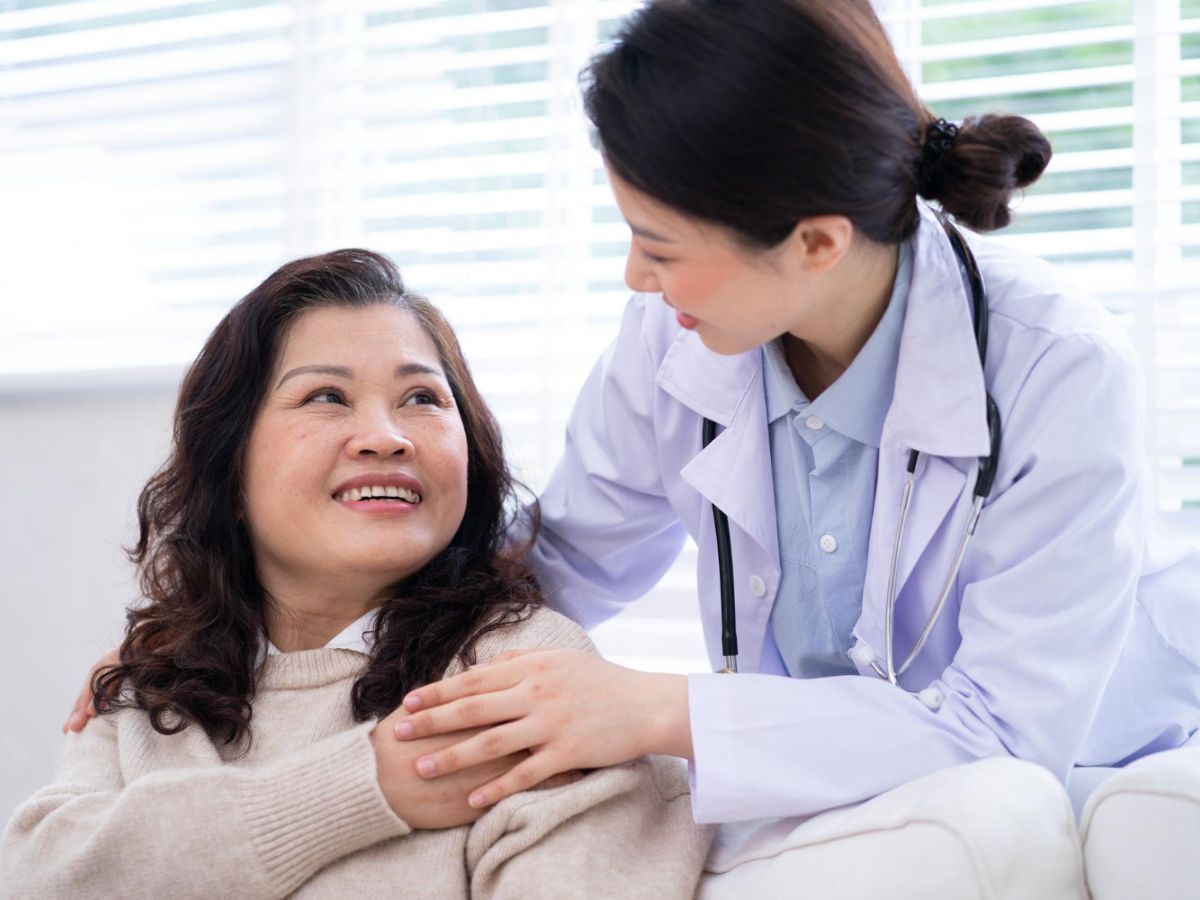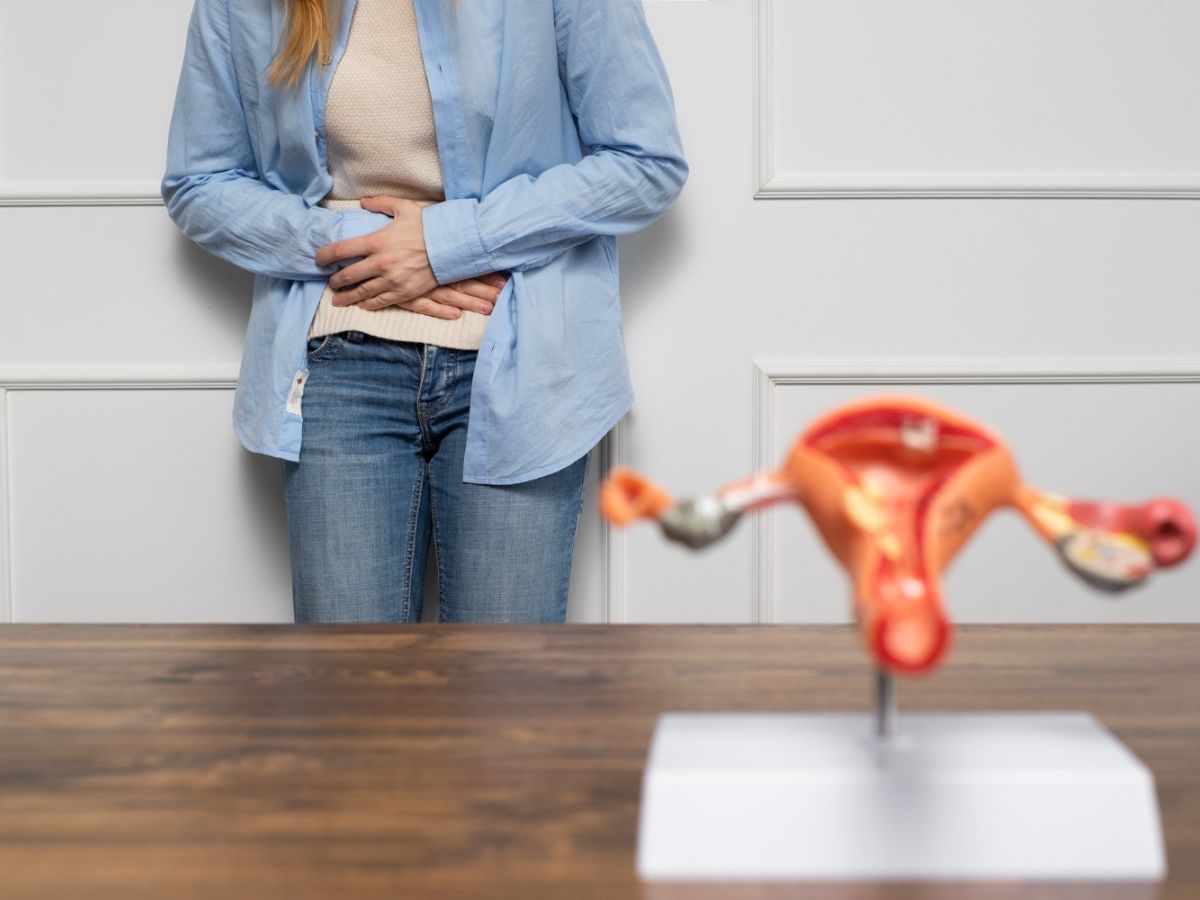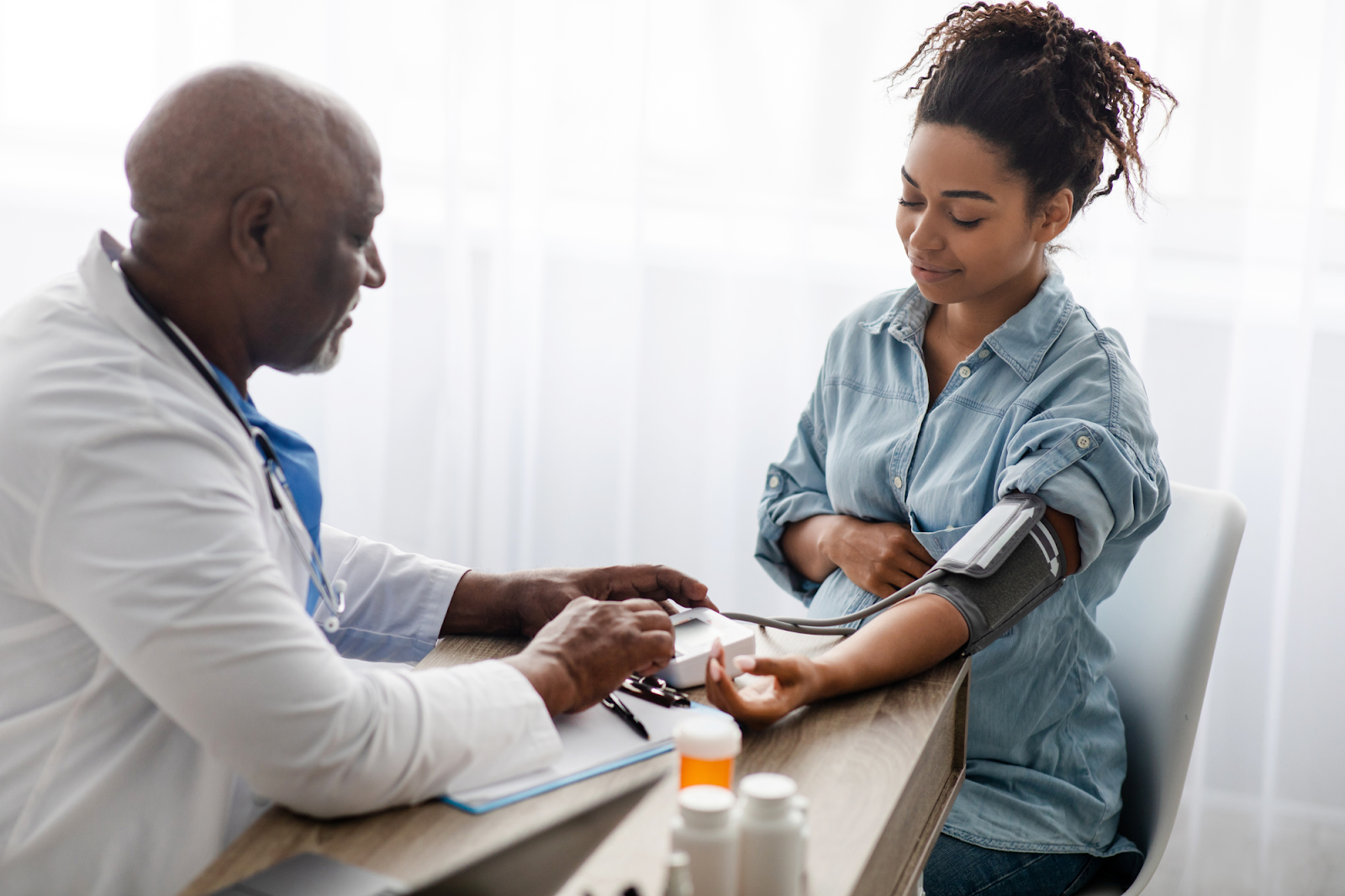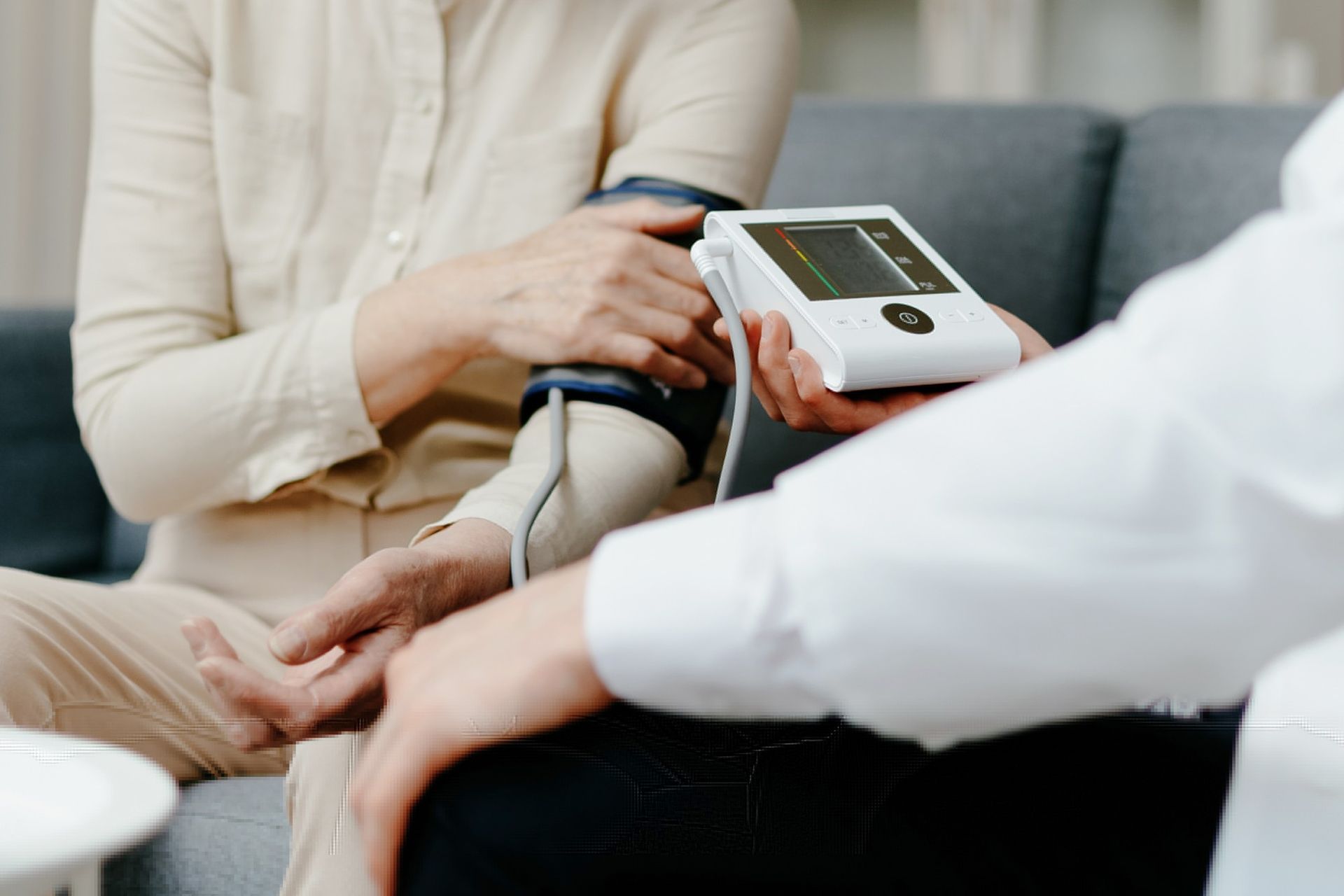Many women in Texas face the added stress of balancing work, family responsibilities, and personal health, often neglecting their own well-being. This challenge is compounded by a critical shortage of healthcare providers willing to offer comprehensive women's services due to ambiguous policies (i.e., abortion laws).
According to the Commonwealth Fund's 2024 State Scorecard on Women's Health and Reproductive Care, Texas ranks 50th overall and is the second-worst state for women's health outcomes. The study analyzed data on maternal mortality, insurance access, and other factors across all 50 states and Washington, D.C.
Given these alarming statistics, the need for accessible preventive care is more pressing than ever. Our clinic in Houston is dedicated to bridging this gap by providing essential well-woman exams, ensuring all women can prioritize their health—including you.
Take Charge of Your Health Today
Components of a Well-Woman Exam
Well-woman exams are a proactive approach to maintaining and improving women's health. They play a crucial role in the early detection of diseases, which is key to more effective treatment and better outcomes.
A
comprehensive well-woman check-up offers these key benefits:
- Early detection helps identify issues such as cervical cancer, breast cancer, and other conditions at an early stage.
- Preventive care involves vaccinations, screenings, and lifestyle advice to prevent diseases.
- Health management helps women manage chronic conditions like diabetes, hypertension, and more.
- Reproductive health
includes guidance on family planning, contraception, and managing menopause.
Exam Features Explained
Participating in a women's health check-up is vital for understanding your overall health. This covers all three components:
1. Medical History Review
Purpose: To gather extensive information about the patient's health, family history, lifestyle, and any symptoms or concerns they may have. Includes:
- Discussion of menstrual history, sexual activity, and contraceptive use
- Review of past medical and surgical history
- Family history of diseases such as cancer, diabetes, and heart disease
- Lifestyle factors include diet, exercise, and substance use
2. Physical Examination
Purpose: To assess the overall physical health and identify any signs of potential health issues. Includes:
- Physical assessment: This general check-up measures weight, blood pressure, and vital signs.
- Breast examination:
This test involves a manual examination of the breast tissue to check for lumps or abnormalities.
- Pelvic examination:
A pelvic
exam checks the external and internal reproductive organs to identify irregularities.
- Pap smear: This screening test collects cells from the cervix to check for cervical cancer.
3. Screenings and Tests
Purpose: To detect early signs of diseases and conditions that may not yet be causing symptoms. Includes:
- Blood tests: In this test, your healthcare provider draws blood to check for cholesterol levels, blood sugar, and other health markers.
- Mammograms: Breast cancer screening is recommended based on age and risk factors.
- Bone density tests:
Particularly in women who have undergone menopause, bone density tests help evaluate the likelihood of osteoporosis.
- HPV testing:
This screening test
detects human papillomavirus (HPV), a risk factor for cervical cancer.
Our Houston clinic addresses your unique health needs with complete well-woman screenings. From physical assessments to Pap smears, our
expert care team ensures you receive the attention and care you deserve without rushing.
Scheduling Your Health Exams
Routine screenings and exams are essential for maintaining optimal health and preventing severe conditions. By catching problems early, you can often avoid more costly and invasive treatments down the line.
Women aged 21–29 should have
Pap smears every three years, while those aged 30–65 should have them every 3–5 years, considering health history and risk factors. Studies have shown that regular Pap tests can
reduce the occurrence of cervical cancer
by 80%.
Physical assessments should be conducted every 1–3 years for women under 40 and annually for those 40 and older, with increased frequency based on health status and risk factors.
Younger women are advised to have
breast examinations every 1–3 years, while those 40 and older should have them annually, and they are encouraged to do self-exams monthly.
Detecting localized breast cancer early results in a 99% five-year survival rate, meaning about 99 out of 100 women who receive treatment will be alive five years later. This high survival rate highlights the importance of early detection and treatment.
Pelvic examinations are typically performed every 1–3 years, with frequency adjusted based on symptoms and individual health needs, and may be less frequent for women over 65 without significant health concerns. If you're under 21 and have period abnormalities, vaginal discharge, or pelvic pain, you should get a pelvic exam.
Curious about what you can and
cannot do before the screening?
Discover what happens during a well-woman exam and crucial things to remember for your next appointment.
Bridging the Healthcare Gap in Houston
As a primary caregiver in your family, you often prioritize the health and well-being of your loved ones over your own. This act, though selfless, may lead to healthcare negligence, increasing your chances of developing a disease. The Commonwealth Fund's analysis paints a concerning picture for women in Texas, ranking it second-worst for health outcomes.
Texas also ranks last in the country in terms of healthcare access and affordability. The report highlights that 22% of Texan women aged 15–44 lack health insurance, and 27% have
avoided seeing a doctor due to cost concerns. These statistics are alarming, particularly for women in Houston who face significant barriers to accessing quality healthcare.
This data underscores the critical need for accessible preventive care. Our clinic is dedicated to addressing these challenges by offering comprehensive women's check-ups with flexible scheduling options to accommodate even the busiest caregivers. Plus, we don't charge facility fees.
Patient Testimonial: A Personal Experience with Dr. Choudhary
"Dr. Choudhary was very personable and took her time with the exam and my questions. She is very knowledgeable and provides updated guidance on well-woman exams. She listened to my concerns, and I feel very comfortable returning to her for my care. The staff was also very nice and attentive." — Courtney Barnes
Improving Women's Health with Houston Family Practice
A well-woman checkup is a decisive step toward better health, offering numerous benefits such as early detection, preventive care, effective health management, and reproductive health support.
At Houston Family Practice, we understand that each patient is unique. That's why we offer personalized care plans, assistance with insurance navigation, and health education to empower you to prioritize your health. We focus not only on preventive screenings but also on helping you develop a healthy lifestyle, starting with essential exams that guide you toward better health outcomes.
To ensure timely care, we often get patients into our office in less than a week. Same-day appointments are also available to accommodate your busy schedule.
Take the first step toward better health today—schedule your well-woman exam with us and continue to be there for your loved ones by taking care of yourself. Learn more by calling (713) 520-6016.
Get the Personalized Care You Deserve
Book Your Well-Woman Checkup















